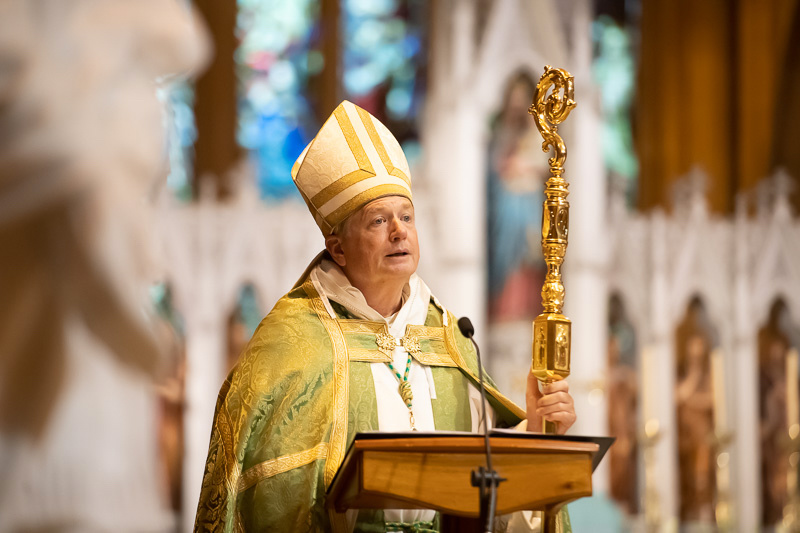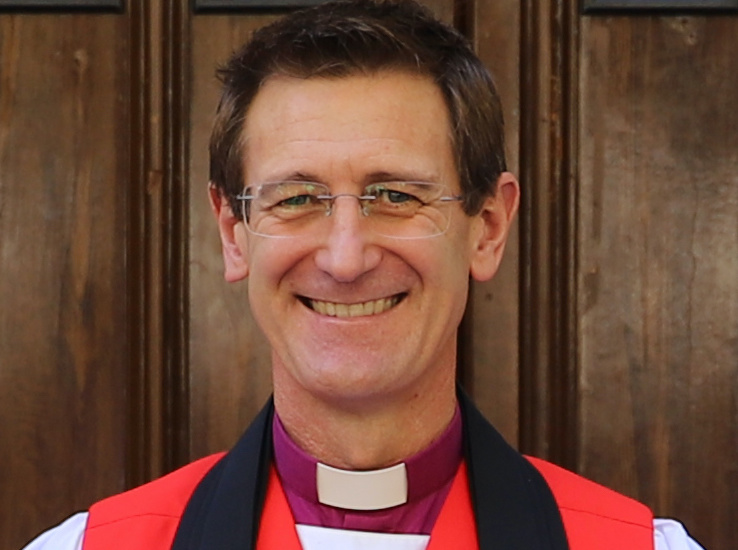Sydney, Australia
A Private Members Bill to allow voluntary assisted dying in the Australian state of New South Wales is little more than “state-sanctioned killing”, Catholic Archbishop of Sydney Anthony Fisher says.
The bill, which has 28 co-sponsors, was introduced into state parliament on Thursday by independent Sydney MP Alex Greenwich, who also presented a petition of 100,000 signatures in support of the legislation on Tuesday.

Catholic Archbishop of Sydney Anthony Fisher. PICTURE: Giovanni Portelli
Fisher says there’s “never a good time to introduce laws that sanction the killing of vulnerable human beings such as the terminally ill, elderly, frail and suffering”.
His comments, made in July as Sydney entered its four-month COVID-19 lockdown, have been reiterated this week as the NSW Lower House prepares to debate the latest bill on assisted suicide.
In 2017, another euthanasia bill introduced by Nationals MP Trevor Khan was defeated by just one vote. Every other state in the country has passed legislation allowing voluntary assisted dying. Queensland passed its legislation on last month.
Fisher said politicians should not be concentrating on a bill that would “enable a small group of highly autonomous people to make their doctors complicit in their suicide”.
“The state-sanctioned killing of the sick, elderly and frail of New South Wales is the last thing we need right now!” he said. “I call on the government to keep us focused on the present [COVID-19] challenges and once they have been met, let us focus on medicine at its best and not its most lethal.”
Meanwhile, the organisation HOPE (Preventing Euthanasia and Assisted Suicide) says Greenwich’s Bill is “much more dangerous” than previous proposals because it removes many protections that were present in the defeated 2017 Bill.
“For example, the doctors signing off on someone’s death don’t even need to meet and examine the patient in-person; they can sign-off on a patient’s death via telehealth,” it said.
“The Greenwich Bill requires no mental health assessment of the patient, and no mandatory reporting to the coroner. There are many more concerns about this bill that put vulnerable people at great risk.”
In an opinion piece last week, Sydney Anglican Bishop Michael Stead wrote that voluntary assisted dying “hides behind euphemisms”.
“It is not “compassion” to inject someone with lethal drugs. VAD is physician-assisted suicide, which puts the medical profession, who have a duty to care for the elderly and vulnerable, in an impossible position,” Stead said.
“The policy of the Australian Medical Association is that doctors should not be involved in ending a patient’ life.”

Sydney Anglican Bishop Michael Stead. PICTURE: Supplied.
He also said given the findings of the Aged Care Royal Commission about the crisis in aged care, “we should be addressing these issues to ensure that elderly Australian have the best possible care, including palliative care.
“We should rightly be concerned that a decision to end one’s life might be coerced and not truly “voluntary” (and there are not sufficient safeguards in this Bill to prevent this).
“But an even great danger is that – because VAD legalises killing oneself – we become a society where choosing death voluntarily is increasingly normalised. This in itself creates an insidious pressure, much in the same way that the high prevalence of abortion has led to a deplorable expectation that young pregnant women should terminate an unplanned pregnancy.”
He said there was a very real danger that normalising euthanasia for the terminally ill could lead to “a not-so-subtle pressure against ‘choosing’ to prolong life with (expensive!) palliative care and ‘choosing’ to put emotional and financial demands on your family as they support you in your last months”.
“As soon as society legitimates the “choice” to end one’s own life, the alternative course of action also becomes a choice.”
The Bishop said in a society where people felt they were a burden, there needed to be a new perspective.
“Christians have a very different way of thinking about people, that doesn’t measure value by a person’s contribution to Gross Domestic Product. We need to flip this “burden” narrative, and help our ageing saints see that their infirmity is an opportunity to let others help bear their burdens, which to their friends and family is no burden at all.”
He said in this way, people still could die with dignity, “because dignity comes from being made in the image of God, not from our capacity to contribute”.
Correction: The date on which Queensland passed euthaniasia legislation has been corrected.






